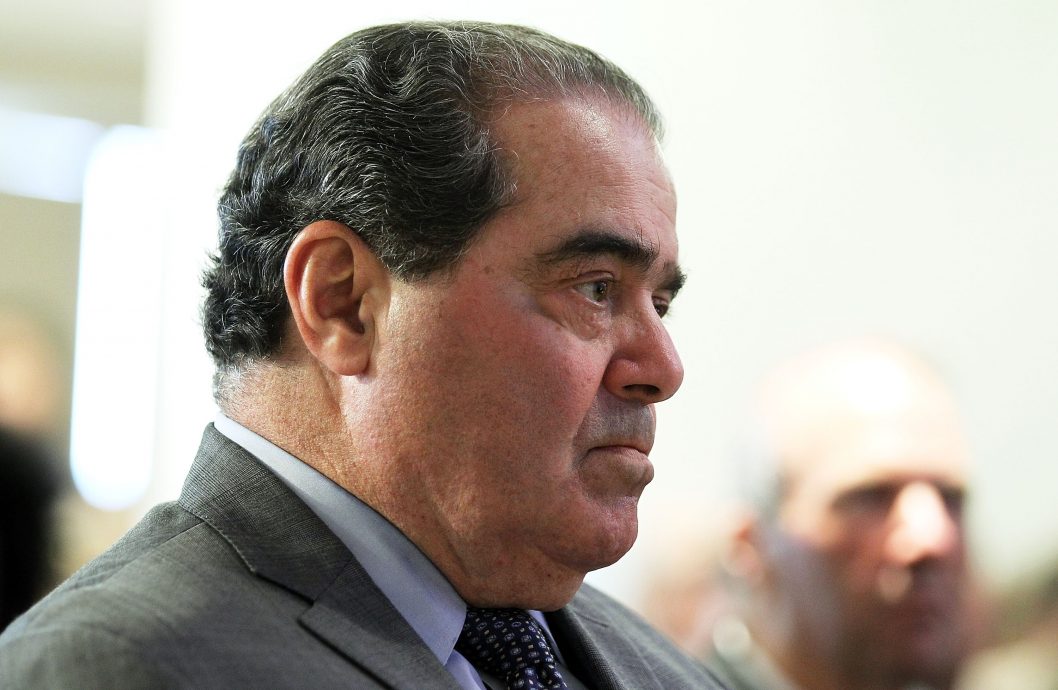He could be relied upon to explain clearly and patiently why there is something called Western Civilization and why it should be studied and bolstered.
Justice Scalia's Conservatism Does Not Detract from His Originalism
The ideas of Justice Scalia remain at the center of constitutional discourse even after his death. This jurisprudential afterlife is unusual: with rare exceptions, justices who leave or retire disappear from intellectual and legal discourse without a trace. Most held the legal world in thrall because of their powerful office, not their distinctive voice.
Justice Scalia did not just cast votes, but advanced and refined an idea—originalism—that survives his demise. Not surprisingly, those who do not like this idea are not very happy about the Justice’s enduring influence. For instance, a recent book tries to take him down, and in turn has been heavily criticized.
Another effort at downgrading Justice Scalia’s legal contribution claims that only recently have those praising Justice Scalia framed his importance in terms of his jurisprudential stances. It argues that earlier in his career he was seen mainly by his admirers as a movement conservative. The implication is that his ideas are largely a reflection of that movement and should not have much resonance outside it.
What was offered as Exhibit A in support of this view is a short essay I wrote for National Review back in 1996, arguing that Scalia would be a good presidential candidate in 2000. (This piece does not appear to be available online but I am happy to e-mail a PDF copy to whoever is interested). I contended that Scalia was an articulate conservative who united both the social and economic strands of the right—a welcome change from Bob Dole, the Republican standard bearer in 1996, who was neither articulate nor conservative, but just a generic Republican leader.
But I can testify that I also believed as much then as I do now that Scalia was one of the foremost defenders of originalism. It would have been silly to think otherwise. He had already powerfully redirected originalism from original intent to public meaning originalism. Indeed, there are lines in the 1996 essay that make my admiration for Scalia’s appreciation of original meaning clear.
But for Justice Scalia to become President Scalia, I had to argue that he also was sensible and articulate on other issues. Jurisprudence alone cannot propel a candidate to the White House. His conservative bona fides were obvious. For instance, Scalia was a past editor of Regulation, where he championed deregulation. As soon as he got on the Court, he displayed his economic acumen, as when he made clear his doubt about the economic wisdom of anti-takeover statutes that interfered with companies being sold to the highest bidder. But crucially he also understood the difference between economic and constitutional analysis, In rejecting the dormant commerce Clause challenge to that anti-takeover law, he famously said: “A law can be both economic folly and constitutional. This statute is at least the latter.”
And his separation of law from policy preferences shows why there is no tension in praising him for both being an originalist and a conservative, even if not everyone would admire him for both these positions. He defended originalism on various grounds that can be easily severed from his social and economic views, such as the need for clear rules and democratic legitimacy. Indeed, originalism is needed in no small part because the kind of minds who are equal to the task of being a Supreme Court justice can hardly be expected to be agnostics about the political good.
Scalia’s multifaceted qualities never obscured the jurisprudential contributions that assure that he will be be remembered long after the vast majority of his fellow justices are forgotten.


